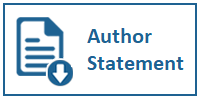Effect of Data Quality and Task Technology Fit on SIHA Performance in West Papua Province
DOI:
https://doi.org/10.31937/si.v16i1.4207Abstract
Human Immunodeficiency Virus (HIV) infection remains a global health challenge, including in Indonesia. Effective monitoring is crucial to controlling the spread of this disease, especially in regions like West Papua, which face geographical challenges. Although the HIV/AIDS Information System (SIHA) has been in use since 2012, data quality limitations still affect monitoring effectiveness. Research on the impact of data quality on monitoring performance using the Task Technology Fit (TTF) approach in West Papua remains limited. This study aims to analyze the influence of data quality in SIHA on the effectiveness of HIV/AIDS monitoring through the TTF model. A quantitative method was employed through a survey of 103 SIHA users. Data were analyzed using SEM-PLS to examine the relationships between variables. The results indicate that data quality significantly affects task-technology fit (TTF) and monitoring performance, whereas task, technology, and individual characteristics do not have a significant impact. These findings highlight the importance of improving data quality through validation and user training to support more effective HIV/AIDS monitoring in West Papua.
Downloads
Downloads
Published
How to Cite
Issue
Section
License
Copyright (c) 2025 Tresia Wake

This work is licensed under a Creative Commons Attribution-ShareAlike 4.0 International License.
Authors retain copyright and grant the journal right of first publication with the work simultaneously licensed under a Creative Commons Attribution-ShareAlike International License (CC-BY-SA 4.0) that allows others to share the work with an acknowledgement of the work's authorship and initial publication in this journal.
Authors are able to enter into separate, additional contractual arrangements for the non-exclusive distribution of the journal's published version of the work (e.g., post it to an institutional repository or publish it in a book), with an acknowledgement of its initial publication in this journal.
Copyright without Restrictions
The journal allows the author(s) to hold the copyright without restrictions and will retain publishing rights without restrictions.
The submitted papers are assumed to contain no proprietary material unprotected by patent or patent application; responsibility for technical content and for protection of proprietary material rests solely with the author(s) and their organizations and is not the responsibility of the ULTIMA InfoSys or its Editorial Staff. The main (first/corresponding) author is responsible for ensuring that the article has been seen and approved by all the other authors. It is the responsibility of the author to obtain all necessary copyright release permissions for the use of any copyrighted materials in the manuscript prior to the submission.















